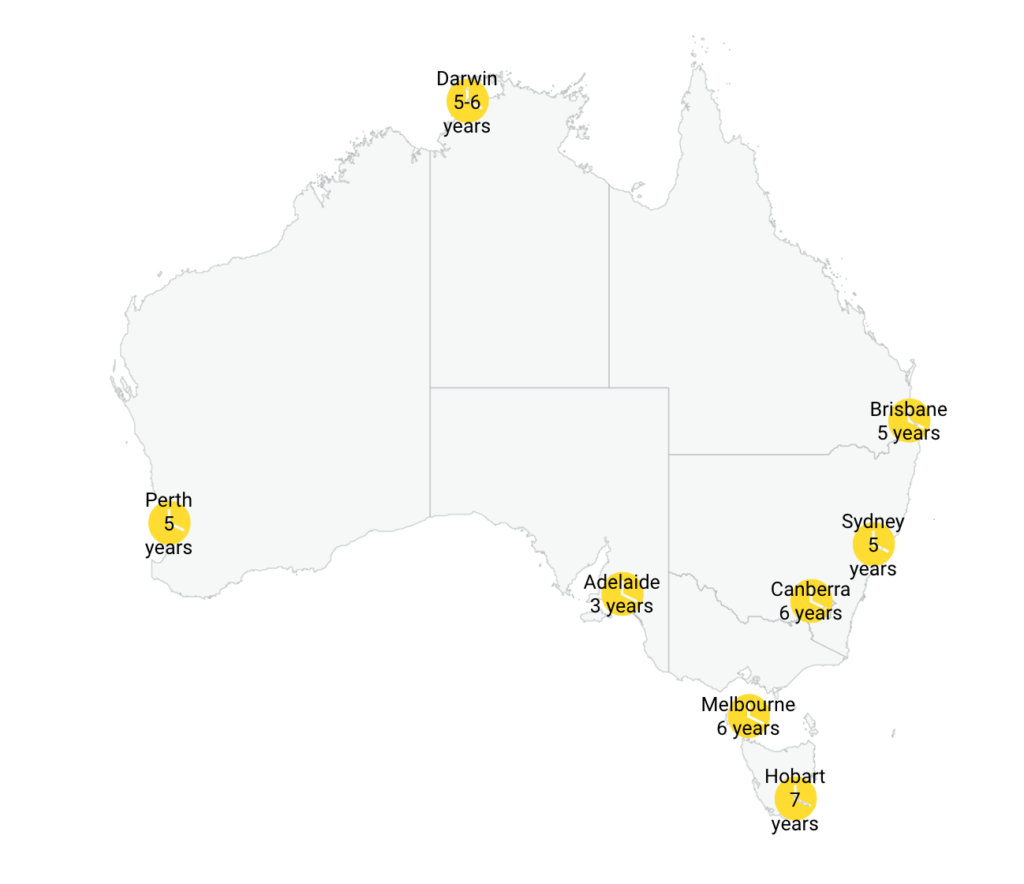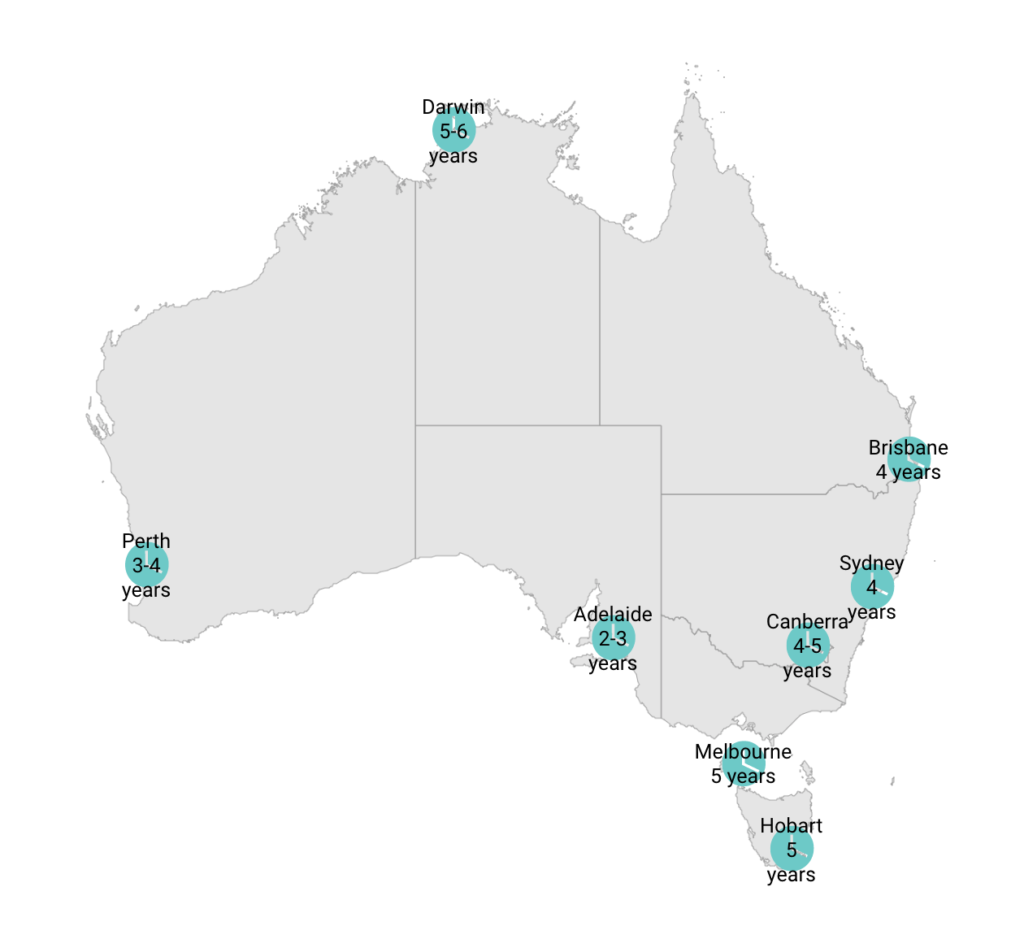According to Solar Victoria, one in every five homes has installed solar panels on their roof. That number could potentially increase with the state government’s incentives to encourage Victorians to use renewable energy. With more rebates and subsidies announced, maybe you’re one of the many Victorians ready to make the transition to solar energy. If so, you’ll want to know how to choose the right solar panel for your home. Let’s look at some of the factors you’ll need to consider before selecting your solar panel installation.
Find the right solar panels for your system installation.
Solar panels are solid-state cells that have very long lifespans, with no moving parts to wear out. There are different cell types, and each has pros and cons:
- monocrystalline
- polycrystalline
- thin film
Regardless of the cell type you chose for your panel, solar installation specifications show their expected lifespan, capacity, price, and other performance characteristics that define their energy output. The output can be measured with panel efficiency readings, wattage and size. Companies that specialise in solar panel installation can recommend the right options but the following factors are key when selecting the right fit for your lifestyle and home.
Panel efficiency
The efficiency of a panel is the measure of the output in relation to the collection area. The most common panel efficiencies range from 4% to 22%, where 14% to 18% is the most common range. The efficiency will vary based on the space and type of panel. Panels with higher efficiency can fit more generation capacity than low-efficiency panels.
The efficiency will depend on the panel’s technology and is not always an indicator of quality.
Note: Higher efficiency panels usually cost more but use smaller areas; in other words, fewer panels. Smaller solar panels mean quicker installation, therefore less labour cost.
Importance of panel wattage and size
When choosing your solar system, it’s vital to be familiar with the system size in watts. E.g., a 3kW system may be made up of fourteen 250-watt panels. This specification in watts is known as the rated peak power, which means the panel’s maximum generated power under test conditions. So what does panel wattage mean when generating energy?
Large wattage systems will generate more energy in the installation, but energy generation depends on many external factors, such as:
- clouds
- shading
- sunlight hours
- temperature
- panel orientation
As a common rule, the year’s average energy generation can be estimated by finding out the average peak sun hours per day. For example, a 4kW system in Melbourne with an average of 4.6 peak sun hours should generate approximately 14.5 kWh of electricity every day; usually more in summer than during winter.
According to Choice Magazine Australia, a conventional home uses 20kWh of energy a day, so a 5kW solar system would generally meet an average home’s daytime power needs.

Panel quality and selection
Quality cells are essential, but the overall manufacturing of the panel and system is also crucial. If the assembly process is substandard, specific issues may shorten the solar panel lifetime.
Sometimes crystalline cells get microcracks. These are tiny cracks at a cell level that can enlarge over time due to thermal cycling. In extreme weathers that vary drastically during the same day (for instance, hot during the day and very cold during the night) it’s normal to get cracks. Also, poor handling practices may result in a similar issue.
Microcracks can reduce the energy-generating capacity of the overall output.
TIP: choose panels that have been manufactured to the highest standards. We generally class solar manufacturers by a ‘tier system’ (tier 1, 2 or 3).
- Tier 1: big long-standing manufacturers with a good reputation for quality and performance
- Tier 2 & 3: smaller, newer manufacturers.
To be eligible for rebates, panels sold in Australia must have Clean Energy Council approval. The council approval demonstrates that panels have been tested and meet Australian and international standards. Find out if you are eligible for any Victorian Solar Rebate.
Solar inverter efficiency
Similar to the panels, be cautious of generic type brands. Not all solar inverters are the same, and its efficiency will impact on the payback times. Before the purchase, look into the inverter efficiency.
With high-efficiency inverters, you can reduce the amount of electricity wasted as heat during the conversion from DC to AC (DC = Battery, AC= Generator). A high-efficiency converter could represent a more significant initial investment but can drastically reduce waste in the long run.
Solar panel mounting
Regardless of the panel mounting you get (roof, ground or tracking system), make sure it’s engineer certified. Depending on the location of your home, you may require a particular mounting and a relevant certification. Let’s say you live in a cyclone-prone area; you would require cyclone rated mounting and brackets.
Typically, quality solar panel systems are wind certified. After all the spending, you don’t want your system to take off during a storm! The mounting is crucial. Ensure it’s wind certified and make sure you get copies of relevant documents.
Warranty Periods
Always take a look into the guarantees your provider offers.
If the manufacturer belongs to Tier 1 and the warranty period on the system (or panels) is at least 25 years old, you would expect the solar panel system to last long enough to pay for itself and make a profit.
However, the manufacturer needs to be still trading for a warranty to be honoured. So, make sure you choose a reputable manufacturer with a track record in Australia.
Any solar panel worth buying will include an extended warranty. Make sure it covers the following:
- Panel warranty from the manufacturer
- Inverter warranty
- Installation warranty
You can read more about what should be included on each warranty here.

Return on investment
A common question is how much does a solar panel system cost and how much would you save?
- On average, a 5kW system is $5,100, and every day, cheaper components are emerging in the market.
- Once you install the system, it takes anywhere from two to seven years to recover the initial investment. After that, homeowners can start counting savings, with payback times varying on location and the external conditions mentioned above.
The following infographic shows the average payback time for capital cities.


Households with low daytime energy use (e.g., when residents are not home during the weekdays), typically export 75% of their solar power to the grid, whereas households with residents home during the day tend to export 50%.
Note. Data is supplied by the Alternative Technology Association and is calculated for capital cities. Actual results may vary across each state due to available sunshine hours.
Find if you’re eligible for any rebate.
There are a number of types of rebate available:
- Solar Panel (PV) Rebate
- Small-scale Technology Certificates (STCs)
- Selling your surplus electricity with Feed-in Tariffs (FiTs)
Make sure you’re aware of your options by visiting Solar Victoria. If you’d prefer to consult an expert, the team at Twin Electrics and Plumbing is happy to advise you. We’ve been installing and repairing solar panels since Australians started embracing solar energy, so we have one of the most experienced solar installation teams in Victoria.
